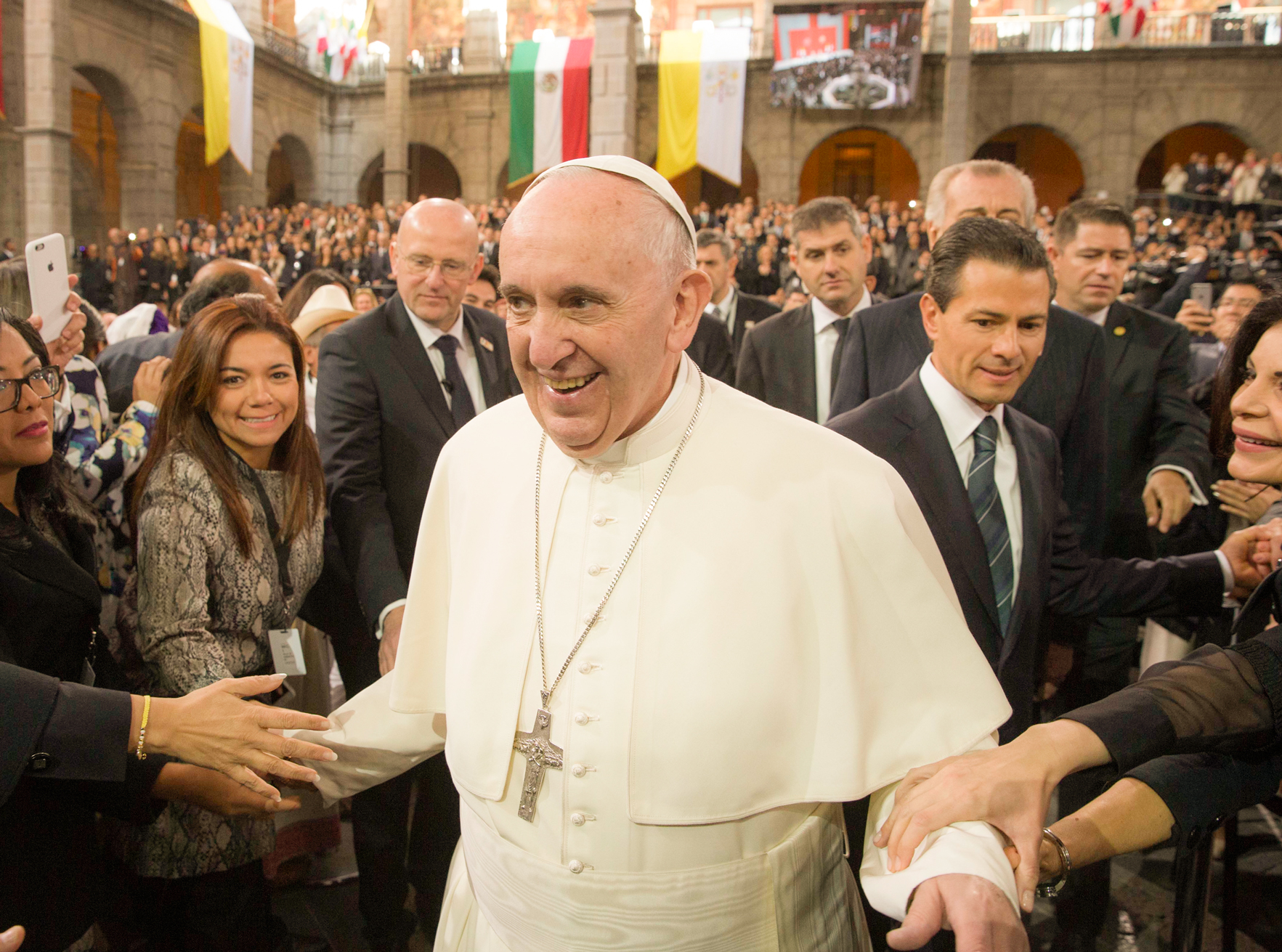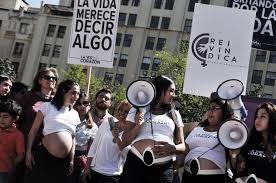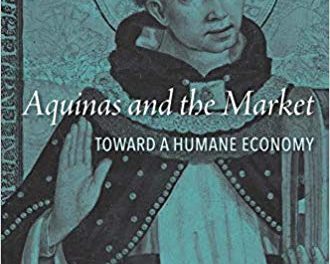Like his other writings, Pope Francis’s Fratelli Tutti is a rich – and long! – document that will continue to yield riches from many readings. There is a lot that could be discussed about certain sections, like the extended reflection on the Good Samaritan, the lengthy discussion of what is meant by “fraternity,” and even the extent to which this is the social encyclical that finally addresses the post-Internet situation of humanity. But… well, it is the Internet age, so there’s a news cycle. I would note three key things.
Catholics believe in the unity of the human race.
When discussing Vatican II, Catholics are apt to talk about the importance of all people being created in the image of God or about the Church sharing the joys and griefs of all of humanity. Yet deeper than these claims about origins and dialogue is a claim about destiny. It is a conviction that the human race is a unity that God seeks to gather. Henri de Lubac’s classic Catholicism: Christ and the Common Destiny of Man is a touchstone for articulating this thoroughly social version of Christianity. Benedict eloquently enshrined de Lubac’s teaching in the encyclical tradition in Spe Salvi, writing:
Against this [individualistic vision of personal salvation], drawing upon the vast range of patristic theology, de Lubac was able to demonstrate that salvation has always been considered a “social” reality. Indeed, the Letter to the Hebrews speaks of a “city” (cf. 11:10, 16; 12:22; 13:14) and therefore of communal salvation. Consistently with this view, sin is understood by the Fathers as the destruction of the unity of the human race, as fragmentation and division. Babel, the place where languages were confused, the place of separation, is seen to be an expression of what sin fundamentally is. Hence “redemption” appears as the reestablishment of unity, in which we come together once more in a union that begins to take shape in the world community of believers. … This real life, towards which we try to reach out again and again, is linked to a lived union with a “people”, and for each individual it can only be attained within this “we”. It presupposes that we escape from the prison of our “I”, because only in the openness of this universal subject does our gaze open out to the source of joy, to love itself—to God. (SS, 14)
Benedict makes clear this gathered unity is what is envisioned by Christian hope. This is a fundamental rejection of a Christianity that is about and for the individual, whether for their momentary serenity here and now or their personal peace in the hereafter. Francis’ document is an extended commentary on this unity and the threats to it – it is what he means in the opening paragraphs when he speaks of the topic of the encyclical as “human fraternity and social friendship” that “transcends the barriers of geography and distance.” He insists we understand ourselves as “a single family in a common home” (17). The initial target of the encyclical – one that is simply emphatically underlined in the wake of COVID – is “fragmentation” and “new forms of selfishness and a loss of the social sense” (11).
This unity of the human race is contrasted very effectively with certain “false universalisms,” that promise unity but instead end up “depriving the world of its various colours, its beauty and, ultimately, its humanity” (100). Most importantly, Francis throughout promotes a “culture of encounter” – if we believe in the ultimate destiny of the human race as one (as Benedict taught), we need to live like Francis is teaching in our everyday lives. This idea of human unity – of communion with all in charity through God and in Christ – is simply what Christianity is. If we forget this, then we simply no longer know what we are doing.
There are a lot of condemnations of –isms.
Speaking of “universalisms,” there are a lot of –isms under attack here. The document articulates the dangers of individualism (13, 105 – maybe the core condemnation?), racism (20), consumerism, neoliberalism (168 – but in various forms throughout), nationalism (11), “local narcissism” (146), and the like. None of what is articulated in these condemnations is new in the encyclical tradition. But the distinctive style of Francis both sharpens these critiques and (at the same time) raises questions about them. Francis is the master of the poetic, literary, sermonic image, often a contrast image, much as Jesus offers in many parables (see his masterful Ignatian exposition of the Good Samaritan, especially 64-65 & 69, insisting on our identification with one or another figure in the parable). Francis develops these images in ways that are rich and repay reflection. Take this passage, in which Francis quotes one of his own homilies during the pandemic:
we fed ourselves on dreams of splendour and grandeur, and ended up consuming distraction, insularity and solitude. We gorged ourselves on networking, and lost the taste of fraternity. We looked for quick and safe results, only to find ourselves overwhelmed by impatience and anxiety. Prisoners of a virtual reality, we lost the taste and flavour of the truly real (33).
Now here is a stunning, powerful set of accusations of our age, of the society caught out by COVID. “We gorged ourselves on networking, and lost the taste of fraternity” is a text for the ages. Moreover, this analysis is even more relevant insofar as one obvious “outcome” of the pandemic will be accelerating the shift to online work and interaction. Academia is awash in articles and speculations about more and more online education (even as we lament it). This contrast of our artificial human connectivity displacing the real is remarkably akin to Laudato Si’s core contrast in describing the technocratic paradigm:
The basic problem goes even deeper: it is the way that humanity has taken up technology and its development according to an undifferentiated and one-dimensional paradigm. This paradigm exalts the concept of a subject who, using logical and rational procedures, progressively approaches and gains control over an external object. This subject makes every effort to establish the scientific and experimental method, which in itself is already a technique of possession, mastery and transformation. It is as if the subject were to find itself in the presence of something formless, completely open to manipulation. Men and women have constantly intervened in nature, but for a long time this meant being in tune with and respecting the possibilities offered by the things themselves. It was a matter of receiving what nature itself allowed, as if from its own hand. Now, by contrast, we are the ones to lay our hands on things, attempting to extract everything possible from them while frequently ignoring or forgetting the reality in front of us. Human beings and material objects no longer extend a friendly hand to one another; the relationship has become confrontational (LS, 106).
Note that the connection with nature is exactly what Francis is specifying as “fraternal” – generous, real, reciprocal. Also note the fine, detailed, yet sharp contrast between “receiving what nature itself allowed” and “respecting the possibilities” versus “laying our hands on things” and “forgetting the reality in front of us.” This is also what has happened to human connectivity. Indeed, it is happening now: I am writing a blog post. God forgive us for being unable to escape our own snares.
But… should I be writing a blog post? Is that what Francis is opposing? This same approach that sharpens the critique from a literary perspective raises more difficult questions about application. Specifically, the sharpened images are (again, like the parables) drawn in such exaggerated terms – and yet without enough relation to real figures to enable precision – that one wonders whether any particular person or structures actually reflects them.
In today’s world, the sense of belonging to a single human family is fading, and the dream of working together for justice and peace seems an outdated utopia. What reigns instead is a cool, comfortable and globalized indifference, born of deep disillusionment concealed behind a deceptive illusion: thinking that we are all powerful, while failing to realize that we are all in the same boat. This illusion, unmindful of the great fraternal values, leads to ‘a sort of cynicism. For that is the temptation we face if we go down the road of disenchantment and disappointment… Isolation and withdrawal into one’s own interests are never the way to restore hope and bring about renewal. Rather, it is closeness; it is the culture of encounter. Isolation, no; closeness, yes. Culture clash, no; culture of encounter, yes’ (30)
At what or whom are these targeted? Are figures like China’s leadership or internet billionaires seeking a “single human family” or a “cool, comfortable and globalized indifference”? Who is cool and indifferent, the leavers or the remainers? Who has the sense of being “all-powerful” in the face of fragmentation and community breakdown? This can be debated at some length. Such a debate can be healthy for the tradition, but the lack of precision from the bishop of Rome can also lead to questions about such applications. In a world of Davos elites on the Left, nationalist culture warriors on the Right, and the continued rise of China as the central world power, to whom is Francis speaking? In short, every condemnation of Fratelli Tutti should be welcome (even as we keep in mind that those condemned are our brothers and sisters, right?) – but how they apply to particular cases is debatable… and amidst our fragmentation, will be all too likely to be seized upon and used as weapons in both ecclesial and civil battles.
The universal destination of goods
In Laudato Si, Francis called the principle of the universal destination of goods “the golden rule of Catholic social teaching” (LS, 93-95). In Fratelli Tutti, it is firmly at center stage (119ff.) – as it should always be! Indeed, Francis quotes St. John Paul II’s statement that the universal destination of goods is the “first principle of the whole ethical and social order” (LE, 19; FT, 120) This is the bedrock social teaching of the Church – and it is widely ignored, neglected, and essentially denied in practice. That should end. It should be as well-known as the Church’s teachings on the sacredness of life and the meaning of human sexuality – not in order to diminish these other teachings, but to highlight the most fundamental principles of Catholic moral thought. Taking the universal destination of goods seriously means that our excess wealth should be put in the service of what the Catechism calls the building up of “natural solidarity.” How do we do that? And especially, how do we do that across borders, as Francis sharply indicates we must?
Nowadays, a firm belief in the common destination of the earth’s goods requires that this principle also be applied to nations, their territories and their resources. Seen from the standpoint not only of the legitimacy of private property and the rights of its citizens, but also of the first principle of the common destination of goods, we can then say that each country also belongs to the foreigner, inasmuch as a territory’s goods must not be denied to a needy person coming from elsewhere. (124 – it can hardly be a coincidence that this statement is followed by a quote from the US bishops!)
Here again, this is not new. In 1967, Pope St. Paul VI wrote vividly in Populorum Progressio:
We must repeat that the superfluous goods of wealthier nations ought to be placed at the disposal of poorer nations. The rule, by virtue of which in times past those nearest us were to be helped in time of need, applies today to all the needy throughout the world. And the prospering peoples will be the first to benefit from this. Continuing avarice on their part will arouse the judgment of God and the wrath of the poor, with consequences no one can foresee. If prosperous nations continue to be jealous of their own advantage alone, they will jeopardize their highest values, sacrificing the pursuit of excellence to the acquisition of possessions. We might well apply to them the parable of the rich man. His fields yielded an abundant harvest and he did not know where to store it: “But God said to him, ‘Fool, this very night your soul will be demanded from you . . .’ ” (PP, 49)
Note exactly weak words from Paul VI! The interesting question will be whether we can better identify what practices contribute to the universal destination of goods on a global scale – practices that must also (challengingly) preserve our “common home,” the Earth. This is perhaps the most important work that we can undertake as we consider what’s next for the world after the pandemic.
Will we? I hope so, of course. But we will have to overcome most of all the temptation to hunker down and enclave up – that temptation is on display in so many ways right now. We will have to remember the unity of the human race. And we will have to remember that our belief in this is not predicated on a polity or policy, but on a person. And, as the pope would be the first to remind us, that person is not Francis.




